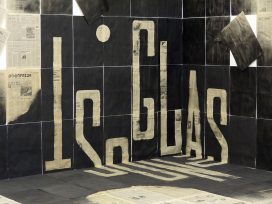The term “reform” has re-entered the political lexicon of numerous post-Socialist states. For the Hungarian government since 2006, it has meant raising taxes and “slimming down” the State; for the opposition, “reform” means “the restoration of moral order” or “lustration”. The inflation of use – and misuse – of the term calls for an enquiry into its origins, as well as those of “revolution”, reform’s next-of-kin. In the first instalment of this two-part essay, Csaba Gombár explains that for an eastern European studying at Berkeley in the late 1960s, the countercultural “revolution” was hard to take seriously. This was because an equally strong sense of “revolution” was emergent at the time: the technological revolution and attendant consumerism. While consumption remains a dominant indicator in measuring the relative “progress” of eastern and western European nations, technological development is no longer seen as “progress” as in the Enlightenment understanding of the term.
Articles
Read more than 6000 articles in 35 languages from over 90 cultural journals and associates.
A decade and a half after the declaration of Slovenian independence and three years after EU accession, Slovenian political and cultural life is stagnating, writes Peter Rak. A confrontational political style together with liberal posturing is producing an isolationist discourse reminiscent of the Cold War. A moderate sense of national spirit and collective self-love is the only way forward, writes Rak.
Richard Rorty
Editorial for "Kritika & Kontext" 34 (2007)
The afternoon of a pragmatist faun
Richard Rorty (1931-2007)
In a fundamentally non-philosophical age, Richard Rorty offered a fast and easy solution to a fundamental philosophical question, writes János Salamon. His critique of universalism constituted a liberation but left no alternative to moral ethnocentrism.
In memoriam Richard Rorty
An obituary
Richard Rorty can be placed alongside Hume, Montaigne, and Wittgenstein in a tradition of dissident philosophy, writes Jan-Philipp Reemtsma. All wanted to put an end to the traditional philosophical discussion, but have become, in one way or another, part of the occidental philosophical establishment.
In Richard Rorty’s article “Democracy and philosophy”, based on a lecture given to students in Iran, he argued that moral insight is “not a product of rational reflection but a matter of imagining a better future, and observing the results of attempts to bring that future into existence.” For Belá Egyed, this constitutes cultural and historical relativism and an abdication of critical rationality.
Béla Egyed has charged Richard Rorty of abdicating objectivity and critical rationality in his essay “Democracy and philosophy”. In a rejoinder written in March 2007, Rorty writes that being rational has nothing to do with the attempt to reduce moral disagreements to clashes between abstract principles.
Each one for himself and his own
On incestuousness as a means of existence in Slovenia
Transition or transitions?
The transformation of eastern central Europe 1989-2007
“Incomplete regime change”, “interrupted revolution”, “geo-political paradigm shift”… Accounts of the transition in eastern central Europe have tended to be fragmentary, with particular features emphasised to the exclusion of others. In the first section of this encyclopaedic essay, Hungarian political scientist Elemér Hankiss pieces together a mosaic of interpretations of transition. Going further, Hankiss checks contemporary Hungarian society against Victor Turner’s description of the “liminal society” – one caught between states of “normality”. While there is much in Hungary today that supports the “liminality” theory – the predominance of tricksters, the calls for restoration of order – there is also much that departs from Turner’s eulogy of change. Indeed, a “great regression” is taking place in the minds of members of transition societies, argues Hankiss, one that will take more than grand economic programmes to reverse.

The patriarch of Muscovite conceptualism
On the death of Russian artist Dimitri Prigov
The Russian artist and writer Dimitri Prigov is dead. Erich Klein, his friend and German translator, remembers one of the most important poets of the late and post-Soviet era.
Today, an Indian child consumes one ninetieth of the energy of her American counterpart. Such comparisons discredit the overwhelming consensus that it is the mass activity of “man” which is responsible for global warming, writes Will Barnes. Instead, the real problem is forms of consumption and the type of development that underpins it.
Critical and public discussion of foreign literature in newspapers and magazines has traditionally served as a source of information and guidance not only for a broad readership, but also for “people in the business”, for publishers and authors. When that discussion disappears, or loses its perspectives and becomes one-sided, this has consequences for the literary institution as a whole, writes Eurozine’s editor-in-chief Carl Henrik Fredriksson.
Cultural Citizenship
introduction
Literary perspectives: Estonia
Waiting for the Great Estonian Novel
While the Great Estonian Novel has yet to be written, writes poet and critic Märt Väljataga, the range of fiction in Estonian is sufficiently wide to serve as an indicator of the hopes and fears, anxieties and obsessions, of post-communist Estonia. From the autobiographical to the historical realist and allegorical, Estonian novelists have successfully developed a variety of styles to respond to post-Cold War experience.
Beyond abyssal thinking
From global lines to ecologies of knowledges
Modern Western thinking continues to operate along abyssal lines that divide the human from the sub-human, argues Boaventura de Sousa Santos in a fundamental article. The “Western” side of this line is ruled by a dichotomy of regulation and emancipation, and the other by appropriation and violence. The only way to capture the full measure of what is going on, writes Santos, is a gigantic decentring effort. The struggle for global social justice must be a struggle for global cognitive justice as well. In order to succeed, this struggle requires a new kind of thinking, a post-abyssal thinking.